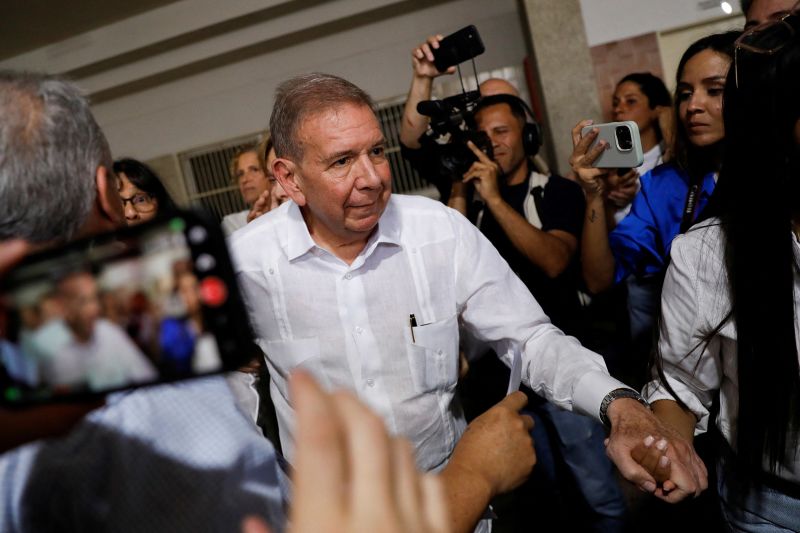
Venezuelan Opposition Candidate Edmundo Gonzalez Packed His Bags for Spain
In recent news, Venezuelan Opposition candidate Edmundo Gonzalez has made waves by leaving the country for Spain. This unexpected move has sparked a range of reactions and raised questions about the future of the opposition movement in Venezuela.
Gonzalez’s departure comes at a critical moment in Venezuelan politics, as opposition leaders continue to face intense pressure from the government of President Nicolas Maduro. His decision to leave the country has further complicated an already tense political landscape, leaving many wondering about the implications for the opposition’s fight for democracy.
One of the key questions arising from Gonzalez’s departure is the impact it will have on the opposition’s ability to rally support and challenge the Maduro regime. As a prominent figure within the opposition movement, Gonzalez played a crucial role in galvanizing support for the cause and uniting various factions under a common platform. His absence is likely to be felt deeply, particularly in the run-up to important political events such as elections or mass protests.
Furthermore, Gonzalez’s decision to leave Venezuela for Spain has raised concerns about the safety and security of opposition leaders in the country. The Maduro government has a long history of cracking down on dissent and targeting opposition figures, with many politicians and activists facing harassment, imprisonment, or surveillance. Gonzalez’s departure may signal a growing sense of fear and vulnerability among opposition leaders who feel increasingly threatened by the government’s actions.
In addition to the immediate political implications of Gonzalez’s departure, his move to Spain has also reignited debates about the effectiveness of exile as a strategy for resisting authoritarian regimes. While leaving the country may offer a degree of physical safety and protection from persecution, it can also be seen as a retreat from the struggle for change within Venezuela itself. Critics argue that by leaving their homeland, opposition leaders like Gonzalez risk losing touch with the needs and aspirations of the Venezuelan people, and may struggle to remain relevant on the national stage.
On the other hand, supporters of Gonzalez’s decision to leave for Spain view it as a strategic move to regroup, gather international support, and plan for future actions against the Maduro regime. By establishing a base in a foreign country, Gonzalez and other exiled opposition leaders may be better positioned to coordinate efforts, engage with the international community, and advocate for democratic reforms in Venezuela from abroad.
Overall, Gonzalez’s departure from Venezuela to Spain represents a significant development in the ongoing struggle for democracy and human rights in the country. The implications of his move are complex and multifaceted, touching on issues of leadership, security, exile, and international solidarity. As the Venezuelan opposition grapples with the challenges of political repression and authoritarian rule, the departure of key figures like Gonzalez underscores the high stakes and difficult choices facing those who dare to challenge the status quo.
